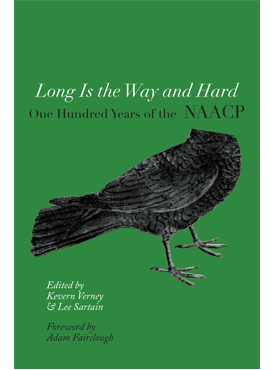Celebrating its one-hundredth anniversary in February 2009, the National Association for the Advancement of Colored People (NAACP) has been the leading and best-known African American civil rights organization in the United States. It has played a major, and at times decisive, role in most of the important developments in the twentieth century civil rights struggle. Drawing on original and previously unpublished scholarship from leading researchers in the United States, Britain, and Europe, this important collection of sixteen original essays offers new and invaluable insights into the work and achievements of the association.
The first part of the book offers challenging reappraisals of two of the NAACP’s best-known national spokespersons, Walter White and Roy Wilkins. Other essays analyze the association’s cultural initiatives and the key role played by its public-relations campaigns in the mid 1950s to counter segregationist propaganda and win over the hearts and minds of American public opinion in the wake of the NAACP’s landmark legal victory in Brown v. Board of Education. Others provide thought-provoking accounts of the association’s complex and difficult relationship with Martin Luther King, the post–World War II Civil Rights movement, and Black Power radicals of the 1960s.
The second part of the collection focuses on the work of the NAACP at state, city, and local levels, examining its grassroots organization throughout the nation from Chicago, Cleveland, and Detroit in the North, to California in the West, as well as states across the South including Virginia, Arkansas, Alabama, Louisiana, and Texas. Providing detailed and fascinating information on hitherto little explored aspects of the association’s work, these studies complement the previous essays by demonstrating the impact national initiatives had on local activists and analyzing the often-strained relations between the NAACP national office in New York and its regional branches.

